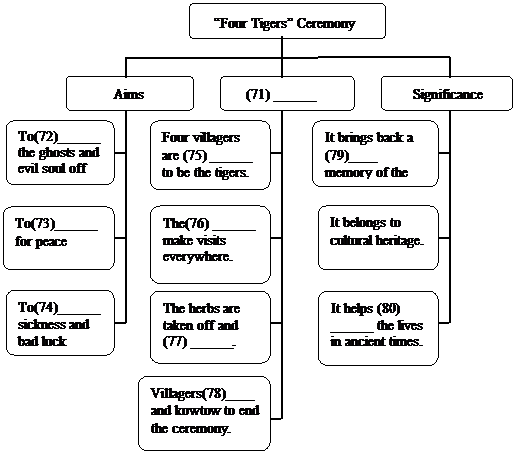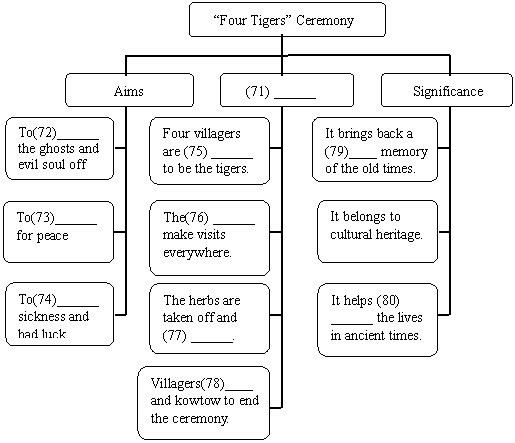题目内容
For the Turner sisters and their classmates,taking a part??time job might ______ their time for study.
A.cut off B.cut into C.cut down D.cut away
C
解析:
考查动词短语辨析。cut off“切断,切掉,剪下”;cut into“侵犯,打断”;cut down“削减,删节”;cut away“切掉,砍掉”。根据句意知应选C项。

练习册系列答案
相关题目

 After visiting all 30 or 40 households, the herbs were removed from the tigers and burned, to indicate that all the ghosts had been conquered. Then the villagers knelt and kowtowed with the sound of firecrackers, marking the end of the ceremony.
After visiting all 30 or 40 households, the herbs were removed from the tigers and burned, to indicate that all the ghosts had been conquered. Then the villagers knelt and kowtowed with the sound of firecrackers, marking the end of the ceremony.